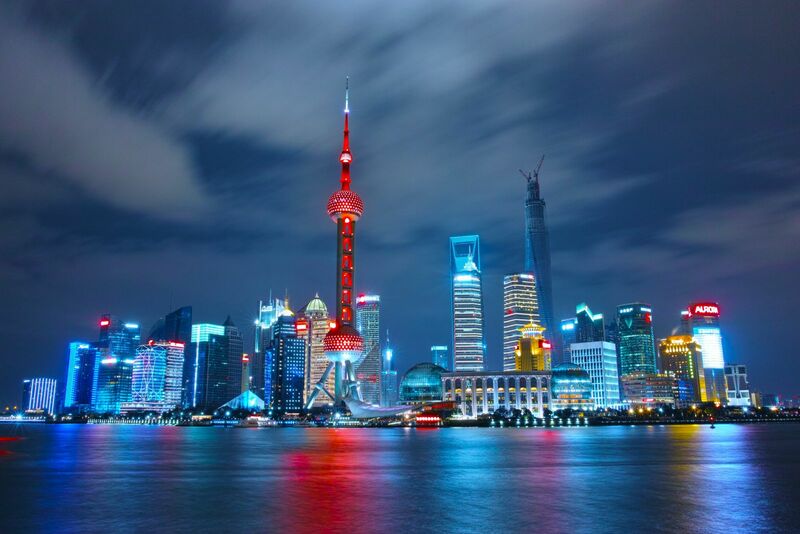
The U.S. Commerce Department this week has expanded its restrictions on chip exports to China. Unsurprisingly, many large-cap semiconductor stocks fell yesterday, considering their high revenue exposure to the world’s second-largest economy.
While Nvidia (NVDA) is getting outsized attention on this news – which is justified, given its trillion-dollar market cap and status as the bellwether of artificial intelligence (AI) chip demand – there are other chip stocks investors should also look to avoid if you expect the ongoing tensions between the world’s two largest economies to result in deeper and broader export curbs going forward.

U.S.-China Tensions Are On the Rise
U.S.-China relations have been on the decline for years now. In 2018, former President Donald Trump took on China over the burgeoning trade deficit, and imposed tariffs on billions of dollars of imports from China. While the actual positive impact of these tariffs on the U.S. economy and job markets is debatable (and polarizing) – it nonetheless raised important questions about the lopsided trade relations between the two countries.
Unlike the Trump administration - which more or less went for the carpet-bombing approach in trying to address the U.S. trade imbalance, and imposed tariffs on not only China, but many strategic allies as well - the Biden administration has taken a more focused approach, and has been trying to support on-shoring through legislation like the Inflation Reduction Act and the CHIPS and Science Act, with the latter intended to boost U.S. chip manufacturing capacity and reduce reliance on imports.
U.S. Restricts Sales of AI Chips to China
Another pillar of the current administration’s strategy has been to limit exports of high-end chips and other cutting-edge technology to China. Last year, the Commerce Department imposed restrictions on exports of some high-end chips, like Nvidia’s A100 and H100 processors – to which Nvidia responded by coming up with A800 and H800 chips, which were designed specifically for China.
The current regulations impose a ban on these two chips, and are also expected to impact sales of AI chips from chipmakers like Intel (INTC) and Advanced Micro Devices (AMD). Also, any new set of chips with processing power just below what’s currently restricted would need prior approval for exports to China – effectively closing a loophole that had previously provided a workaround to chipmakers.
Generally speaking, it would be reasonable to expect further escalation in U.S.-China tensions - no matter whether you term it as the “new Cold War,” “trade war,” “tech war,” or “AI war.”
Which Chip Stocks Have the Highest Exposure to China?
Data compiled by Kearney shows that while names like Nvidia, AMD, and Intel get roughly a quarter of their revenues from China, the number is much higher for Qualcomm (QCOM) and Texas Instruments (TXN) - both of which derive over half of their revenues from the nation. Monolithic Power (MPWR) is another chip company that gets over half of its revenues from China.
Looking at the YTD price action, there is a wide disparity among chipmakers. Nvidia is, of course, not only outperforming chip stocks, but it's also the best-performing S&P 500 Index ($SPX) stock of the year, with gains of roughly 190%. AMD is up over 59%, while Intel has gained 37% YTD.
However, Texas Instruments stock is in the red for 2023, while Qualcomm is up just about 2.5% to underperform the broader markets by a wide margin.
In terms of valuation, Texas Instruments trades at a price-to-sales multiple of 6.9x which is higher than both Intel and Qualcomm; however, the stock has historically traded at a premium due to its higher profit margins and better return on assets.

Nvidia - which in the past has tried to play down the export ban on China, citing strong demand for AI chips elsewhere - said in its SEC filing yesterday, “The licensing requirement may impact the Company's ability to complete development of products in a timely manner, support existing customers of covered products, or supply customers of covered products outside the impacted regions, and may require the Company to transition certain operations out of one or more of the identified countries.” It listed the chips that would be impacted by the export ban, and apart from A800 and H800, sales of L40, L40S, and RTX 4090 would also be barred under the new rules.
Rising China Tensions Spell Trouble for Many U.S. Companies
Meanwhile, rising U.S.-China tensions spell trouble not only for chip companies, but also for other companies that have significant exposure to China – Apple (AAPL) and Nike (NKE), for instance. Incidentally, amid reports of sluggish iPhone 15 sales in China, Apple CEO Tim Cook made a surprise visit to the country – his second for this year.
Jefferies analysts believe that Huawei – whose operations suffered a near-death blow after restrictions by the U.S. – has bounced back and dethroned Apple from the top position in the Chinese smartphone market. While Cook has in the past downplayed any boycott threats in China, reports of Apple losing market share in the country to homegrown Huawei tell a somewhat different story.
Meanwhile, it will be crucial to watch how China reacts to the new set of export restrictions by the U.S. In the past, China has retaliated against U.S. actions – most recently when it banned sales of some Micron (MU) products over “national security concerns.” While Nvidia currently seems to be the most significantly impacted by the chip export restrictions, many more companies - including those not in the chip business - would be drawn into the line of fire if U.S.-China tensions continue to flare up.
On the date of publication, Mohit Oberoi had a position in: AAPL , NKE , NVDA , INTC . All information and data in this article is solely for informational purposes. For more information please view the Barchart Disclosure Policy here.






